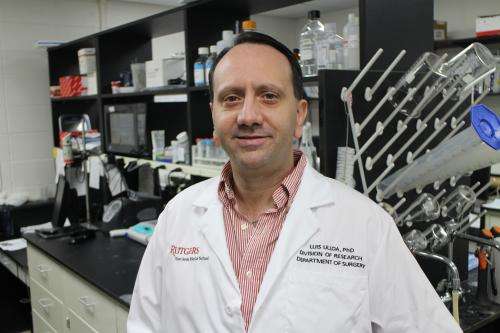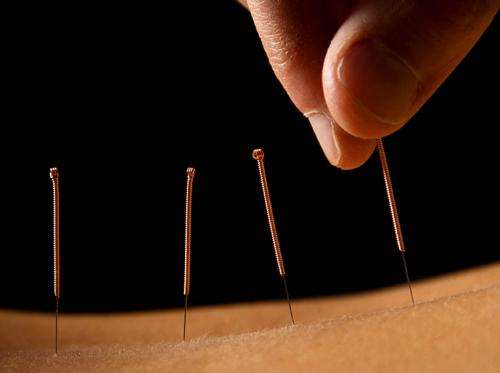Study suggests pathways to alleviating inflammation in disorders such as sepsis, arthritis

When acupuncture first became popular in the Western Hemisphere it had its doubters. It still does. But over time, through detailed observation, scientists have produced real evidence that ancient Chinese practitioners of the medical arts were onto something.
Now new research documents a direct connection between the use of acupuncture and physical processes that could alleviate sepsis, a condition that often develops in hospital intensive care units, springs from infection and inflammation, and takes an estimated 250,000 lives in the United States every year.
"Sepsis is the major cause of death in the hospital," says Luis Ulloa, an immunologist at Rutgers New Jersey Medical School who led the study, which has been published by the journal Nature Medicine. "But in many cases patients don't die because of the infection. They die because of the inflammatory disorder they develop after the infection. So we hoped to study how to control the inflammatory disorder."
The researchers already knew that stimulation of one of the body's major nerves, the vagus nerve, triggers processes in the body that reduce inflammation, so they set out to see whether a form of acupuncture that sends a small electric current through that and other nerves could reduce inflammation and organ injury in septic mice. Ulloa explains that increasing the current magnifies the effect of needle placement, and notes that electrification is already FDA-approved for treating pain in human patients.

When electroacupuncture was applied to mice with sepsis, molecules called cytokines that help limit inflammation were stimulated as predicted, and half of those mice survived for at least a week. There was zero survival among mice that did not receive acupuncture.
Ulloa and his team then probed further, to figure out exactly why the acupuncture treatments had succeeded. And they made a discovery that, on its face, was very disappointing. They found that when they removed adrenal glands – which produce hormones in the body – the electroacpuncture stopped working.
That discovery, on its face, presented a big roadblock to use of acupuncture for sepsis in humans, because most human cases of sepsis include sharply reduced adrenal function. In theory, electroacupuncture might still help a minority of patients whose adrenal glands work well, but not many others.
So the researchers dug even deeper – to find the specific anatomical changes that occurred when electroacupuncture was performed with functioning adrenal glands. Those changes included increased levels of dopamine, a substance that has important functions within the immune system. But they found that adding dopamine by itself did not curb the inflammation. They then substituted a drug called fenoldopam that mimics some of dopamine's most positive effects, and even without acupuncture they succeeded in reducing sepsis-related deaths by 40 percent.
Ulloa considers the results a double triumph.
On the one hand, he says, this research shows physical evidence of acupuncture's value beyond any that has been demonstrated before. His results show potential benefits, he adds, not just for sepsis, but treating other inflammatory diseases such as rheumatoid arthritis, osteoarthritis and Crohn's disease.
On the other hand, by also establishing that a drug reduced sepsis deaths in mice, he has provided an innovative road map toward developing potential drugs for people. That road map may be crucial, because no FDA-approved drug to treat sepsis now exists.
"I don't even know whether in the future the best solution for sepsis will be electroacupuncture or some medicine that will mimic electroacupuncture," Ulloa concludes. The bottom line, he says, is that this research has opened the door to both.
















